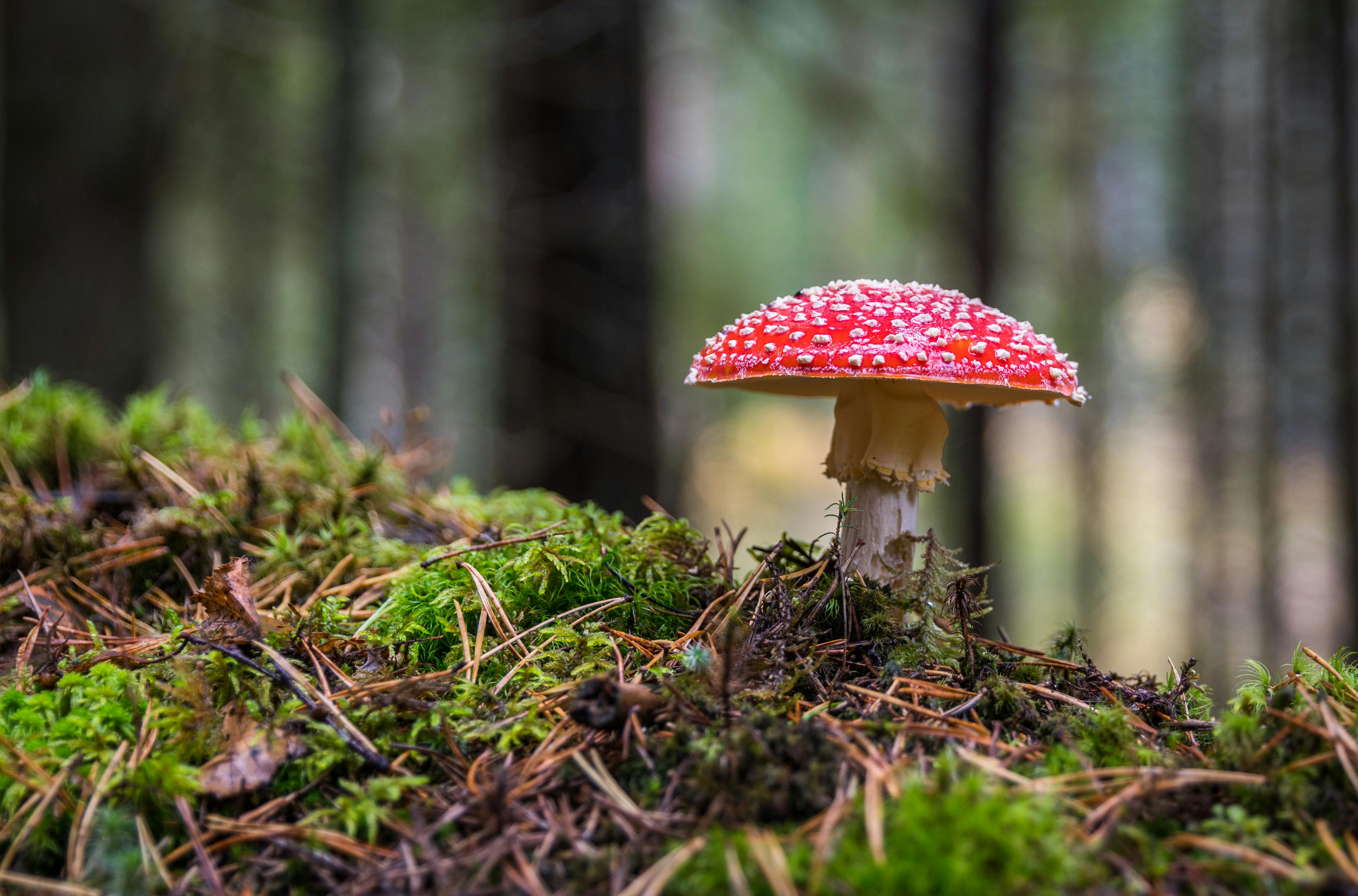
The Secret World of Fungi: Nature’s Hidden Network
When you think of forests, you probably picture towering trees, chirping birds, and rustling leaves. But beneath the soil, hidden from sight, lies a mysterious world that’s just as important—if not more so—for life on Earth. Welcome to the secret world of fungi.
🌱 Not Just Mushrooms
Most of us recognize fungi as the mushrooms we see sprouting after the rain. But mushrooms are just the fruit—the visible tip of a vast underground network called mycelium. This network is made up of tiny thread-like structures called hyphae, and it can stretch for miles beneath the forest floor!
Think of mycelium as the “internet of the forest”—connecting trees, plants, and even bacteria, passing messages and nutrients from one part of the forest to another.
🌍 Nature’s Great Communicator
Trees don’t just compete for sunlight. Through fungal networks, they also communicate and cooperate. Scientists call this the “Wood Wide Web.” Here’s how it works:
- 🌳 Older trees share nutrients with young seedlings that are struggling to grow in the shade.
- 🌲 Sick or dying trees can send their remaining resources to healthier neighbors.
- 🍁 Trees warn each other about insect attacks by sending chemical signals through the mycelium.
All of this happens silently underground—thanks to fungi.
💪 Forest Bodyguards
Fungi also act like bodyguards for plants. Some species form mutual relationships with plant roots, helping them absorb water and minerals like phosphorus and nitrogen. In return, the fungi get sugars made by the plant through photosynthesis. It’s a perfect trade deal!
Some fungi even protect plants from diseases and pests. No wonder many farmers are turning to fungi to grow healthier, chemical-free crops.
♻️ Earth’s Natural Recyclers
When a tree falls in the forest, fungi get to work. They break down dead plants, leaves, and wood, recycling them into nutrients that go back into the soil. Without fungi, forests would be buried under piles of plant waste.
They’re also key players in carbon storage, locking away greenhouse gases that would otherwise warm the planet.
🌌 A Universe Still Unknown
Despite their importance, we’ve only just scratched the surface of understanding fungi. Scientists estimate that there could be millions of fungal species—most still undiscovered. Some can glow in the dark. Others help make cheese, bread, and medicine (hello, penicillin!). A few are even being studied as future building materials and bio-remediators to clean up oil spills and plastic waste.
🌟 Final Thoughts
Next time you take a walk in nature, remember: there’s a whole world beneath your feet, silently supporting life as we know it. Fungi might not get much attention, but they’re some of the hardest-working, smartest, and most mysterious organisms on the planet.
So yes—mushrooms are cool. But fungi? They’re downright magical.




